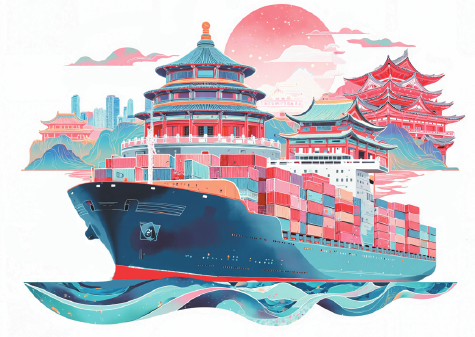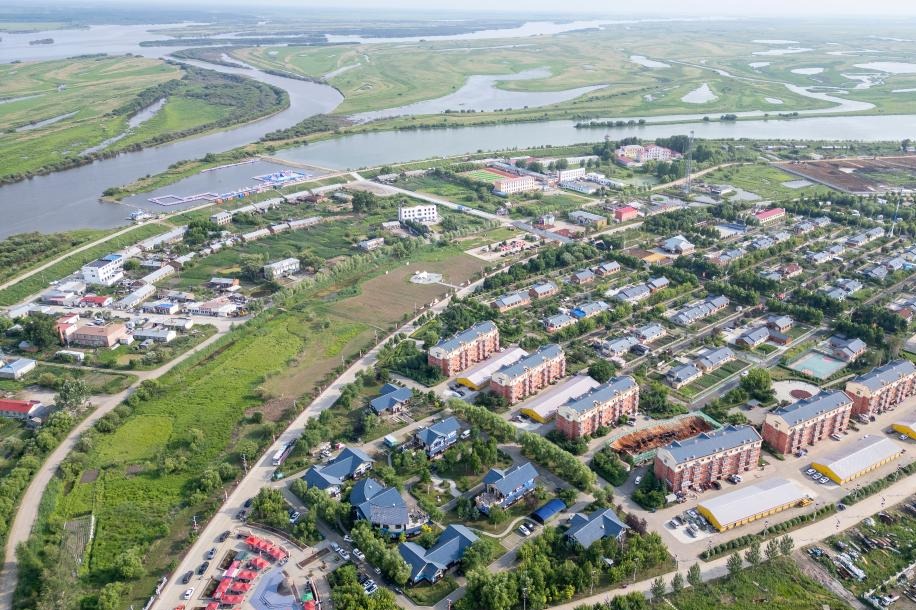China, Japan, ROK urgently need an FTA


That China, Japan and the Republic of Korea face common challenges makes it imperative that they make joint efforts to finalize a China-Japan-ROK free trade agreement (FTA). A trilateral FTA will not only boost the development of the three countries in the next 10 to 20 years but also inject new vitality into the regional and global economies.
Economic and trade cooperation among China, Japan and the ROK is at a critical juncture where "standing still means falling behind". Economic globalization led by the United States has failed, with unilateralism and trade protectionism becoming the mainstream in Washington's medium — and long-term policies.
The US administration has adopted a strategy of "bilateral negotiations with unilateral pressure", which seriously violates the fundamental principles of the World Trade Organization and will most likely push the global economy toward the law of the jungle, significantly increasing the risk of fragmentation and disrupting China-Japan-ROK economic and trade cooperation.
Therefore, China, Japan and the ROK should accelerate the negotiations on and sign an FTA. Ten years ago, when we discussed the feasibility of a China-EU free trade area with European Union think tanks, the EU was open to the idea of building a China-EU "Silk Road of Tomorrow". Back then, I said if we failed to seize the opportunity to sign a China-EU free trade agreement as soon as possible, the "Silk Road of Tomorrow" might turn into "a withered flower of yesterday".
Regrettably, that prediction has come true. This is even more true for Northeast Asia. The more tense and turbulent the regional situation becomes, the more necessary it is for China, Japan and the ROK to establish close and stable cooperative relations. To prevent today's China-Japan-ROK FTA from becoming "a withered flower of yesterday", the three sides need to overcome the common regional challenges, adapt to the general trend of the global economy, and make the strategic decision to sign a trilateral FTA.
Given the global changes, the finalization of a trilateral FTA is not only a pragmatic choice to safeguard the three sides' development interests, but also a key move to maintain the security and stability of regional industry and supply chains, and the free trade order.
Trade in services has become the top priority of economic and trade cooperation among China, Japan and the ROK. As major Asian economies, the three countries not only drive global economic growth but also have huge potential for cooperation in trade in services.
Trilateral cooperation in trade in services will create the largest growth point for the three countries' trade partnership and serve as a stable fulcrum for the upgrading and institutional synergy of Regional Comprehensive Economic Partnership rules on trade in services.
The three countries have significant complementarities in such fields as cross-border data processing, digital healthcare, financial technology and intelligent manufacturing. They can leverage the existing cooperation mechanisms to explore the establishment of channels for facilitating cross-border data flows and mechanisms for mutual recognition of digital platform standards, as well as for setting up pilot cooperation projects in fields such as digital healthcare, smart cities, and digital culture and tourism.
The key lies in the three countries reaching consensus as soon as possible on market access, rule alignment and standards in services trade.
Trade in services has become a key priority as well as a difficult factor in the negotiations on a trilateral FTA. Despite that, the competitive nature of the manufacturing sectors of the three countries has intensified, while their complementarity in the field of trade in services has continued to increase. In June this year, while heading a fact-finding team to the ROK, I learned that the country's main request on China's opening-up lies in the services sector, including performing arts and medical aesthetics. Along with China's important measures for voluntary and unilateral opening-up, the complementarity potential in trade in services among the three countries will be transformed into a real growth momentum. But for that, the three sides need to resolve the differences over trade in services and reach a high-level trilateral FTA with trade in services as a priority.
The signing of an FTA by China, Japan and the ROK as soon as possible will play a key role in building a large regional market and upgrading the RCEP. Regional economic integration with free trade as the main thread is becoming the primary facilitator of globalization. This feature will become more prominent in the next five to 10 years.
In the face of the challenges posed by trade protectionism, the process of regional economic integration has accelerated, and the number of regional trade agreements has surged. To adapt to the general trend of regional economic integration, China, Japan and the ROK need to formulate higher-level economic and trade cooperation rules on the basis of the RCEP.
The RCEP is at a critical juncture of upgrading, from version 1.0 of "the largest in scale" to version 2.0 of "higher in level". China, Japan and the ROK are the bellwethers of the RCEP and will play important roles in leading the RCEP toward version 2.0.
The signing of a trilateral FTA will help build a unified large market in the RCEP region. In 2024, the combined economic size of China, Japan and the ROK was $24.64 trillion, equivalent to 84.43 percent of the US' economy, and accounted for 22.13 percent of the global total and 80.43 percent of the total of the RCEP region.
After the signing of a China-Japan-ROK FTA, the implementation of high-level economic and trade rules in fields such as digital economy, intellectual property rights and competition policy can provide rules, and institutional and market support for the upgrading of the RCEP, boost the construction of a unified large regional market, and emerge as a new driver of the global economy.
The author is president of China Institute for Reform and Development.
The views don't necessarily represent those of China Daily.
If you have a specific expertise, or would like to share your thought about our stories, then send us your writings at opinion@chinadaily.com.cn, and comment@chinadaily.com.cn.


































